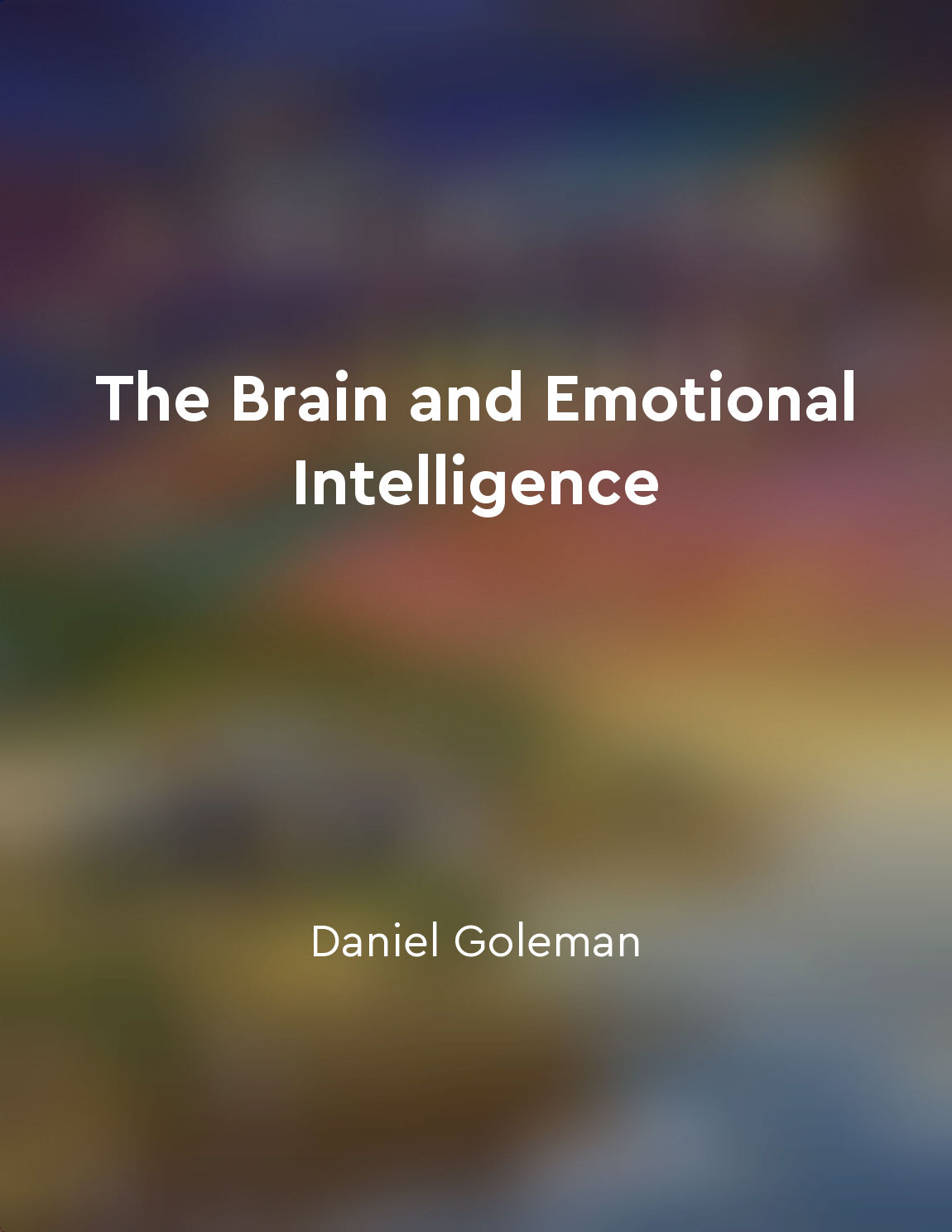Emotional selfcontrol is essential for managing stress from "summary" of The Brain and Emotional Intelligence by Daniel Goleman
One of the key components of managing stress effectively is emotional self-control. This ability allows individuals to regulate their emotions in the face of challenging situations, preventing them from becoming overwhelmed by stress. When we are able to control our emotions, we are better equipped to think rationally and make sound decisions, even in high-pressure environments. Emotional self-control is closely linked to the brain's prefrontal cortex, which plays a crucial role in regulating our emotions and responses to stress. This area of the brain helps us to inhibit impulsive reactions and instead choose more thoughtful and measured responses. By strengthening our prefrontal cortex through practices such as mindfulness and meditation, we can enhance our ability to control our emotions and manage stress more effectively. In addition to regulating our emotions, emotional self-control also enables us to maintain a sense of perspective during stressful situations. Rather than getting caught up in the moment and reacting impulsively, individuals with strong emotional self-control are able to step back and assess the situation more objectively. This allows them to come up with more constructive solutions and avoid making decisions based on fear or anxiety. Furthermore, emotional self-control is essential for building resilience in the face of stress. By learning to regulate our emotions and maintain a sense of calm under pressure, we can bounce back more quickly from setbacks and challenges. This ability to adapt and recover from stress is crucial for maintaining our overall well-being and mental health.- Emotional self-control is a foundational skill for managing stress effectively. By developing this ability, individuals can navigate difficult situations with greater ease and make decisions that are in line with their goals and values. Through practice and self-awareness, we can strengthen our emotional self-control and build the resilience needed to thrive in the face of stress.


